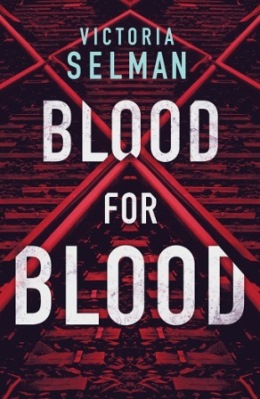.jpg)

You won’t notice
them browsing the detergent aisle in Tesco or manning the cupcake table at the
school bake sale - not because they’re not there but because they don’t look any
different to the rest of us.
But when
they’re on duty - cosying up to terrorists’ wives in Yemen or carrying out raids
to free British hostages in Afghanistan - the women who make up the Special
Reconnaissance Regiment (the ultra-secretive branch of the British Special
Forces) are the most highly trained and deadly operatives on the planet.
They’re
also the real-life inspiration behind my new crime series, featuring the Holmesian
ex SRR profiler, Ziba MacKenzie.
When most
people think of the Special Forces, they think of super-humans shooting and punching
their way out of trouble. But the truth is they rely on their brains as much as
their brawn, setting off a flash-bang in one direction and attacking from
another. Crime fiction is full of kick-ass superheroes. If you haven’t read Lee
Child where have you been?
Much as I
love Reacher (who doesn’t?) I wanted to create a protagonist who thinks rather
than fights her way out of danger. Enter Ziba, a five foot nothing female whose
job is hunting killers, and whose talent is thinking like them. She may have
left the Special Reconnaissance Regiment but she’s been forever shaped by the
time she served in it.
Owing to
the secrecy surrounding it, researching the SRR might have been impossible had
I not been related to someone who served in it. (Not that I can reveal who. If
I do, they might have to kill you…) What this has meant is I’ve been able to
get under the skin of what it would have been like to infiltrate terrorist
cells, hunt killers and all the other events that take place in my character’s
backstory.
Personal
connections aside though, I’m often asked why I decided to focus on the SRR
rather than on the SAS or SBS, the two other branches that far more is known
about.
The answer
is simple.
Not only
does the SRR specialise in classified activities related to covert surveillance
and intelligence gathering missions which feed directly into Ziba’s current
profiler role working with Scotland Yard. But also, it’s the only branch that
accepts women into its units. And these women are TOUGH!
To
qualify, they go through a gruelling (understatement if ever there was one) selection
course including:
– a series of timed marches (known as ‘beasts’)
over the Brecon Beacons mountain range in South Wales carrying increasingly
heavy backpacks weighing up to 60lb and covering 40 miles.
– a 500-metre swim in full combat gear.
– a jungle-training phase in Brunei combined with
extreme sleep deprivation.
The
selection process lasts five months. It has a ninety per cent fail rate. And
people have been known to die on it.
This means
that the women who are chosen to serve are the best of the best- a secret squad
of Amazonian warriors, fluent in multiple languages including Farsi and/or
Arabic (as Ziba is) and often belonging to an ethnicity that ensures they can
carry out their missions by blending into a wide range of dangerous situations.
Which is why Ziba has an English mother and an Iranian Jewish father.
But it’s
not just these factors that give the fighters their edge. The fact is, often
the people they’re targeting view women with contempt. Because of this, they
don’t see them coming…
Perhaps it
was the idea of underestimating your opponent that gave me my real inspiration
for Ziba. Because although she’s capable of incapacitating a guy twice her size
with a double palm strike through the centre line, her height and poor social
skills make most underrate her- usually to their detriment.
And that’s
really fun to write!
What’s also
fun to write is Ziba’s voice. I love the military lingo and the dark humour
that comes from staring into the darkest places. A gun isn’t gun, it’s a
‘bangstick.’ Getting up early isn’t ‘at the crack of dawn’, it’s at ‘early dark
thirty’. And a person doesn’t ‘look a mess’, they ‘look like a bag of smashed
ass’.
Brilliant!
As well as
the colourful language, I’m also interested in the psyche so common to Special
Forces operatives. They are chosen for their physical toughness and mental
capacities. But that doesn’t mean they’ve necessarily got it together
emotionally- not least because of the horrors they’ve experienced.
I wanted
to create a protagonist who had those contrasting elements – tough on the
outside, soft in the middle. And of course, someone who’d not only know how to
place a wiretap but would also know how to disable it and then use it against
her opponents. Or ‘hostiles’ as Ziba would call them.
Which, by
the way, is exactly what she does in my next book…
Blood for Blood by Victoria Selman is published by Thomas & Mercer on 1st
February, price £4.99 in paperback (available from amazon.co.uk). She also co-hosts
the true crime podcast Crime Girl Gang.